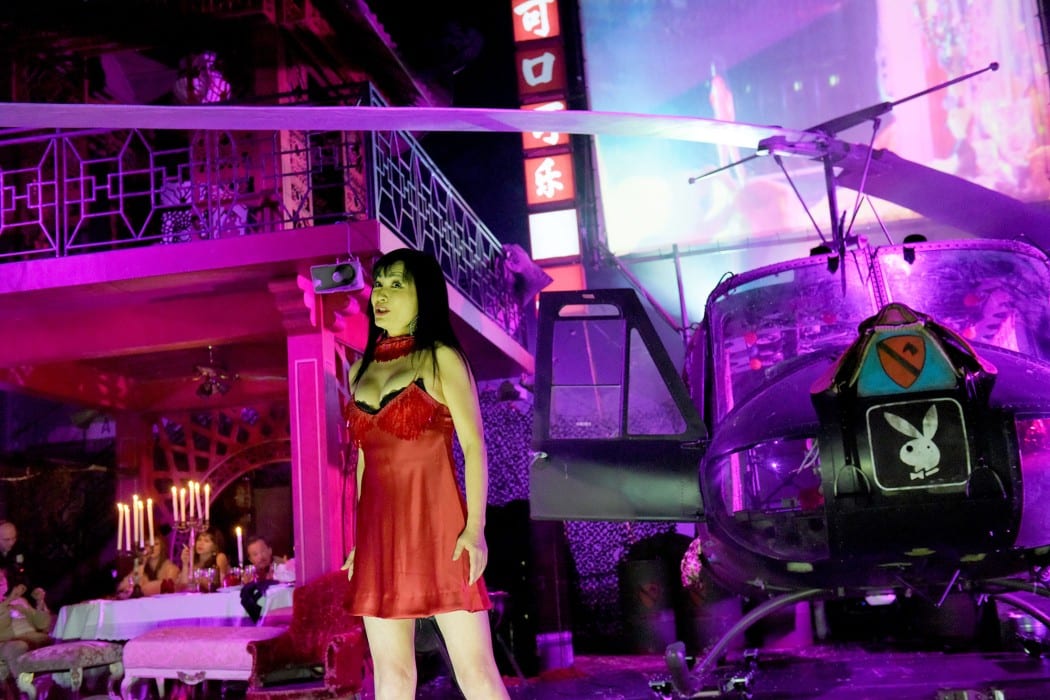In German theatre, Brecht’s early fantasy about a ruthless libertine who ignores both norms and Norns is usually translated into a sweaty egotist who just wants to have an awesome time. This seemingly individual excess, however, becomes a structural and communitydefining feature wherever violence is the rule rather than the exception. Therefore, transposing the story of Baal into the world of the Indochina Wars, as Frank Castorf does in this third part of his war trilogy of poets of violence (following Céline and Malaparte), seems like a brutally logical connection. In brothels and opium dens, while surfing during orgies of napalm and murdering to the sounds of the Stones, the achievements of civilisation dissolve their boundaries with all of Baal’s debauched fury. In Aleksandar Denić’s stacked Vietnam world, including a combat helicopter, pagodas, a waterboarding basement with accompanying propaganda pop and lots of dry ice, Castorf exhausts his company with four and a half hours of excessive reflection on the man-made apocalypse and the current topicality of mental colonialism – a libertinage of content and devices. The jury: “We hope that this production can be shown in Berlin without restrictions and in the form developed by Frank Castorf, and we trust that the rights holders and the theatre will come to an agreement.”

